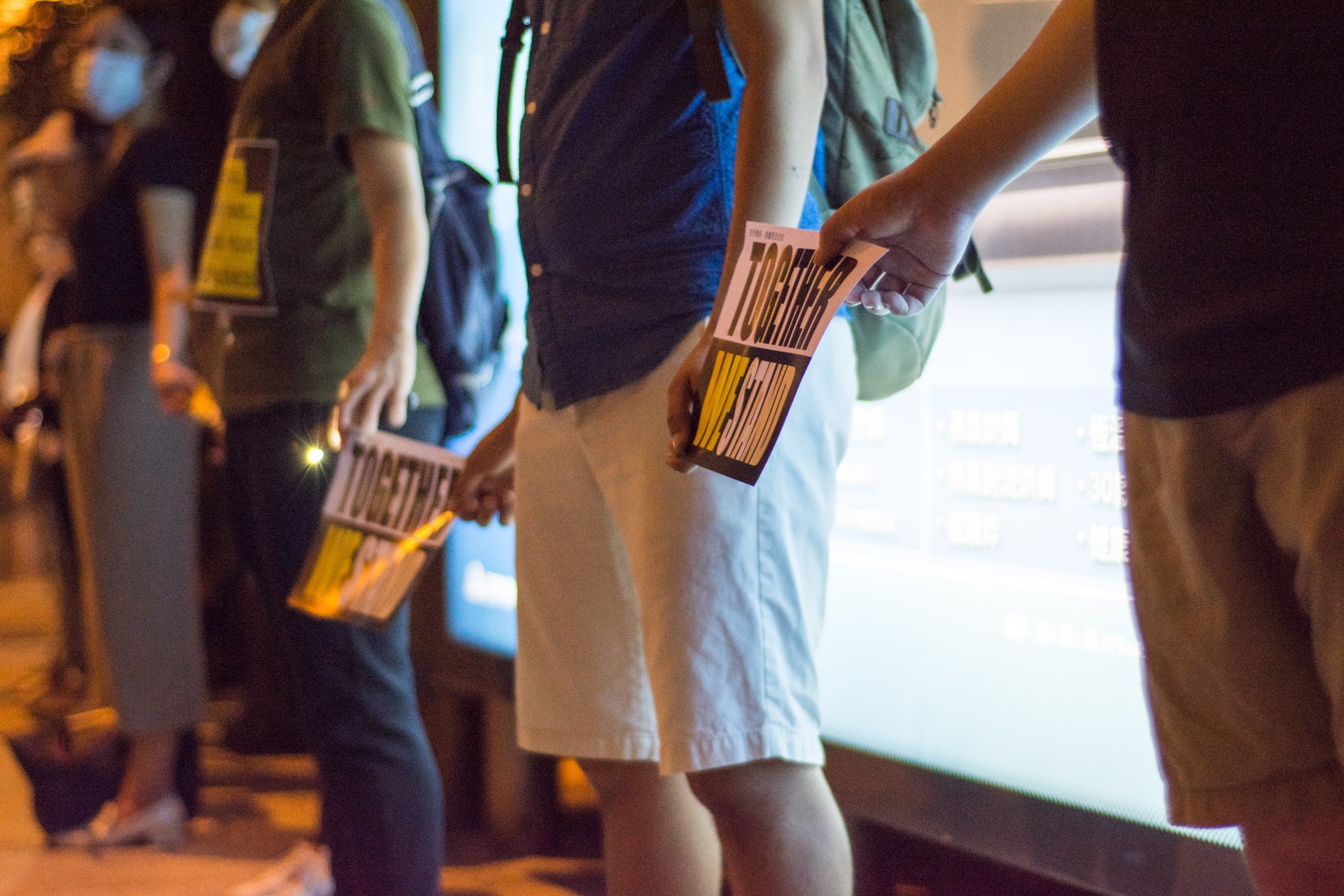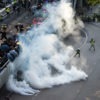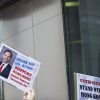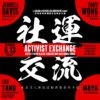Original: 【「2020年,支持美國總統特朗普利多於弊」,你是否同意此說?】, published in Ming Pao
Translator: Sharon Yam
If you would like to be involved in our translation work, please get in touch here.
That night, no one could fall asleep.
After almost an hour’s delay, Trump finally made an appearance to announce his reaction to China’s announced national security laws. Several of my friends in Hong Kong complimented his speech. Trump earned even more applause from Hongkongers when he announced his intention to impose harsh sanctions on China. On the other hand, as Trump discussed China, I couldn’t help but notice the similarities between him and the far-right ethnonationalists I encountered in Europe and the U.S.
Four days later, against almost the exact same backdrop, Trump threatened to mobilize the military to suppress protesters in the U.S., and claimed that he would unleash the “most vicious dogs” on anyone who approached the White House. Why emphasize the dogs? Confederate supporters in the American South often used dogs to attack Black people—I think Trump made this reference deliberately.
In fact, ever since George Floyd’s murder at the hand of a white police officer on 25 May, Trump has been pressuring state governors to adopt more draconian measures to suppress local protests. As a Hongkonger, I was shocked to see the parallels between the protests in Hong Kong and the U.S.: despite vast cultural and geographical differences, the images of police violence, the attitude of those in power and the tone in which they speak, and the tactics of government suppression were eerily similar between the two sites. In both locations, we saw: police vehicles being driven into crowds, including crowds in which people were simply sitting peacefully; the rampant use of teargas and pepper spray to attack civilians; the firing of rubber bullets and tear gas canisters directly at journalists; several shootings of young people by police with live ammunition; and agents provocateurs encouraging the destruction of property. Later, supporters of the police claimed that the protesters had been paid and supported by George Soros.
Black activists possess invaluable knowledge and experience in community organizing. While we may still see ‘disbanding the police’ as merely a slogan, Black activists have long been undertaking concrete projects to make abolition a reality.
Ben Crump, the attorney representing George Floyd’s family, rightly observed that there are two criminal justice systems in the U.S.: one for white people, and one for Black people. His insight gives us an idea why Floyd’s murder sparked a nation-wide uprising. Floyd’s death and the apathetic government response are not isolated incidents. Rather, they highlight how law enforcement and the scales of criminal justice have always tilted in favor of white people, and how existing systems cover up state-sanctioned brutality against Black people and racially-motivated policing.
Isn’t this the exact reason why we are enraged in Hong Kong? A pro-government taxi driver who drove his vehicle into crowds of protesters was never charged or investigated. The injured victims, on the other hand, now face riot charges. A judge once praised a pro-government “blue ribbon” (藍絲) individual who had attacked three people with a knife for his “noble sentiment.” His sentence was shorter than that of Sin Ka-Ho, a protester who pled guilty to the charge of rioting, yet never hurt anybody. The police are not being held accountable for their abuses of power. While graffiti in Hong Kong asks: “Who do you call when the police murder?”, in the U.S. a child holds up a sign with the slogan: “Who do you call when the murderer wears a badge?”
While we have only lived through one hellish year of police brutality, there is a much longer history of African Americans being gunned down by police. According to the Mapping Police Violence project, over 100 unarmed Black people were killed by police in 2015 alone. American police brutality is not news. I will not debate with anyone who supports the Hong Kong police by making the following argument: “If the protesters had done that in the U.S., they would have been gunned down a long time ago.” This argument is akin to saying, “If they were in Mainland China, the Chinese Communist Party would have finished them off a long time ago.”
In reality, Trump and Carrie Lam are the same: both willfully shelter and knowingly condone the police force. When Trump began to condemn protesters and threaten them with military force, alleging that there were “Antifa terrorists”, I thought Hongkongers would stand up to him and reject his rhetoric and actions. This is not the first time Trump has attempted to scapegoat Antifa protesters. Neo-Nazi groups and the Ku Klux Klan are among Trump’s strongest supporters, whereas Antifa protesters emerged to combat those far-right extremist groups. By openly condemning Antifa, Trump has inadvertently admitted to the public that he is a fascist.
Regrettably, many Hong Kong movement supporters have abandoned our fellow activists in the U.S., and have chosen to side instead with the oppressor. Not only that, but local anti-fascist groups have also been attacked. Why is this happening? I have a few guesses. The Hong Kong social movement encompasses several kinds of folks. First, there are people who blindly support the U.S. As Slavoj Žižek observes, “unfreedom” in the U.S. is usually hidden from public view; as a result, it is not easy to tease out its implications. This group of people, therefore, cannot comprehend why there is an uprising in a place that is supposedly free and democratic. The second kind of people are, frankly speaking, calculating and self-interested “pragmatists.” They do not want to educate themselves on the situation. Instead, they are placing all their bets on Trump, thinking that he could give them the opportunity to emigrate, or implement economic sanctions on China for its encroachment in Hong Kong.
While graffiti in Hong Kong asks: ‘Who do you call when the police murder?’, in the U.S. a child holds up a sign with the slogan: ‘Who do you call when the murderer wears a badge?’
But I think these two types of people are not too common. In my social circle, most of my friends belong to a third category: they feel that there are no sound alternatives to supporting Trump. They know that Trump is a problematic figure—but no matter how corrupt he is, he is an important pain in China’s ass. As a result, people do not criticize Trump for his actions. Even when Trump, like a dictator from an authoritarian country, threatens to mobilize the military to suppress his own people, many Hongkongers have chosen to remain silent. They do not want to offend Trump and jeopardize Hong Kong’s “laam chau (攬炒)” (“if we burn, you burn with us”) strategy.[1]
For me, this is a constant worry: when activists assess how important Hong Kong is in relation to China and the rest of the world under this ideology of “laam chau”, the movement’s international advocacy efforts remain solely focused on the economy. I have long been saying that the movement’s international front should not single out the economy because that is exactly where the CCP holds the most power. We often assume that once “One Country, Two Systems” is no longer in place, the U.S. will be first in line to impose economic sanctions on China; Hong Kong’s and China’s economies, then, can presumably “burn together.” But why is it that, despite its rampant violations of human rights and longtime suppression of political freedom, Mainland China continues to attract foreign investment?
After the pandemic, many countries are struggling to revive their economy, making it even more difficult for them to hold their own against Chinese markets. And isn’t Trump a businessman-politician par excellence? For a tycoon like him—wildly inconsistent with his actions and always driven by self-interest—won’t Hong Kong just become yet another “condom?”[2] (To be honest, I really don’t like this analogy. I thought it would only be used by the likes of the Urban Renewal Authority’s leadership.) When the time comes, are we sure that Trump won’t sign a memorandum of cooperation with the CCP? He has no integrity on which we can base our trust.
In addition, what are we giving up when we accept Trump, or the U.S. writ large, as our lifeline? U.S. imperialism, to many people in the West, is more evil than the CCP. Reflecting on the relationship between Iran and the U.S., Noam Chomsky remarked that the U.S. is the biggest threat to world peace. U.S. imperialism, coupled with Trump’s fascist tendencies, scientific denialism, and misogyny, renders the U.S. an unsavory “international partner.” I have lost count of how many times I have had to explain to foreign media and friends why Hong Kong protesters are still flying the American flag.
To be honest, shouldn’t it be difficult for Hongkongers to support Trump’s speech after witnessing the current wave of protests in the U.S. against racist policing? Perhaps we need to carefully consider what we stand to lose if we rely on the Trump administration. I think the moment is ripe for us to finally cultivate a genuine international front for the movement.
We may wonder what this new international front looks like, and this is by no means an easy question to answer. But perhaps we can learn by paying close attention to how the anti-police protests are unfolding in the U.S., and give these protesters our biggest support. This week, I have been sharing tactics and experiences from Hong Kong with fellow protesters in the U.S. (“Is a leafblower helpful in combating teargas? What should organizers do when there are internal disagreements?”) At the same time, I also tried to find out more about their organizing strategies. Having survived a long history of brutal oppression, Black activists possess invaluable knowledge and experience in community organizing. While we may still see “disbanding the police” as merely a slogan, Black activists have long been undertaking concrete projects to make abolition a reality.
A friend once compared the so-called “international front” of the Hong Kong movement as a “crying baby” pathetically whimpering for help from foreign state powers—a far cry from fostering global solidarity. I agree with this criticism. Perhaps, we can make fewer pleas to state powers, and instead direct our efforts toward connecting with other oppressed peoples, to speak in their language and learn from their perspectives. The protesters in the U.S. have never begged state elites for help, nor have they ever bought up advertising space in international newspapers to lobby for multinational intervention. And yet, they have managed to mobilize global support while maintaining their dignity and integrity. This is because everyone understands the depth of the injustice they are facing.
I don’t know whether it would make more sense for us to, say, write a letter to incarcerated allies abroad, rather than sign yet another White House petition. What I am sure of is that Hong Kong’s movement can only prevail if we join hands with all oppressed people around the world.
Footnotes
[1]The “laam chau” strategy derives from a quote in The Hunger Games: “If we burn, you burn with us”. It refers to the idea that Hong Kong is willing to risk its economic position in relation to the U.S. if that will also jeopardize China’s position. ↩[2]This Cantonese catchphrase generally refers to the treatment of others as disposable, like condoms. ↩






